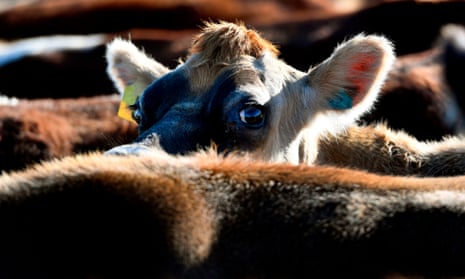Aotearoa New Zealand is a pretty good place to live – if you’re human, that is. If you happen to be a non-human animal, chances are you’re not doing very well.
Inhumane treatment of animals is widespread. It is routinely used in farming (the dairy industry is among the worst perpetrators, as forced pregnancies, separation of calves from their mothers, and slaughter are routine practices); conservation (poison and traps are commonly used to control “pests”); scientific research (430,000 animals were used or bred for experiments last year); and entertainment (such as horse racing and rodeo).
Nonetheless, New Zealanders are becoming increasingly sensitive to welfare issues. Perhaps the biggest indication that attitudes are changing can be seen in our diets: according to research released last year, 15% of New Zealanders avoid meat most or all of the time. Policy is changing, too. The government recently announced that it is banning livestock exports by sea – albeit with a two-year ‘transition period’. Two days later, it launched an inquiry into greyhound racing, following welfare concerns.
These developments are positive, but they are not enough. Although welfare laws improve animals’ lives, they are not aimed at ending exploitation – and in some cases, they are directed at securing its economic viability. In announcing the ban on live exports, the minister of agriculture, Damien O’Connor, justified the policy as enhancing our reputation as “ethical producers of livestock protein”. The message was clear: the ban on live exports is not a step toward ending our use of other animals, it will help to ensure its continued profitability.
Our use and abuse of animals is morally wrong. We must acknowledge that they are sentient beings with interests, and treat them as such.
I believe Aotearoa can become a world-leader on animal issues. We have a history of progressive policy, and a strong reputation internationally. If we commit to animal rights, we will set an example for others to follow – just as we have historically with women’s suffrage, homosexual law reform, anti-nuclear policy, and tino rangatiratanga (Māori sovereignty).
This will require us to reimagine our relationships with animals, and it will affect everything, from how we live with companion animals, to which mahinga kai (food gathering and cultivation) practices our hapū choose to maintain or relinquish.
Our broken economic model is the biggest impediment to change. As a nation, we have become reliant on animal agriculture – but there is no getting around the fact that animal farming is exploitative. It is also detrimental to the natural environment: it is a leading cause of pollution to our land and waterways, and the largest contributor to our greenhouse gas emissions. Diversifying the country’s economy may seem costly, but animal farming already costs far too much, in animal suffering and environmental devastation.
The conservation movement, too, is complicit in animal abuse. In recent years, it has been usurped by “Predator Free 2050”, a programme which aims to eradicate possums, stoats, and rats by the middle of this century. Advocates for the programme insist that they care about animals – namely, our native species – but they also actively demonise introduced species, and this results in the use of methods that cause intense suffering. (It has, for example, led New Zealand to become the world’s biggest user of sodium fluoroacetate, or 1080 poison. 1080 inflicts so much pain on its victims the SPCA wants it banned.)
There are reasons why New Zealanders are willing to vilify other animals: it shifts the blame for environmental destruction from us to them, and it excuses us from committing to more challenging actions, like changing what we consume, divesting from animal agriculture, reinvigorating traditional Māori gardening practices, returning land to native forests, and creating wildlife sanctuaries using non-violent methods (like trap-and-release).
To realise justice for animals, we should prioritise policies that will continue to work for change. Actions our government could take right now include appointing a dedicated minister for animals (Chlöe Swarbrick would be a great candidate for this role, given that she is vegan) and legislating for an independent, well-funded Animal Rights Commission. It could also explore the possibility of granting legal personality to non-human individuals, to help ensure their protection. (This is currently used in relation to two iwi – Waikato-Tainui and Ngāi Tahu – as well as Te Urewera, the Whanganui River, and Mount Taranaki.)
Given the myriad vested interests in exploitation, we cannot rely on public sentiment alone to secure justice for animals. Political leaders must advocate for them because it’s the right thing to do – just as they should build consensus for other contentious issues including prison reform, transgender rights, and increasing the number of refugees we accept. Of course, this will take moral courage.
By recognising and respecting animal rights, we will make Aotearoa New Zealand a better place for its non-human inhabitants.
Philip McKibbin is a writer from Aotearoa New Zealand of Pākehā (New Zealand European) and Māori (Ngāi Tahu) descent
